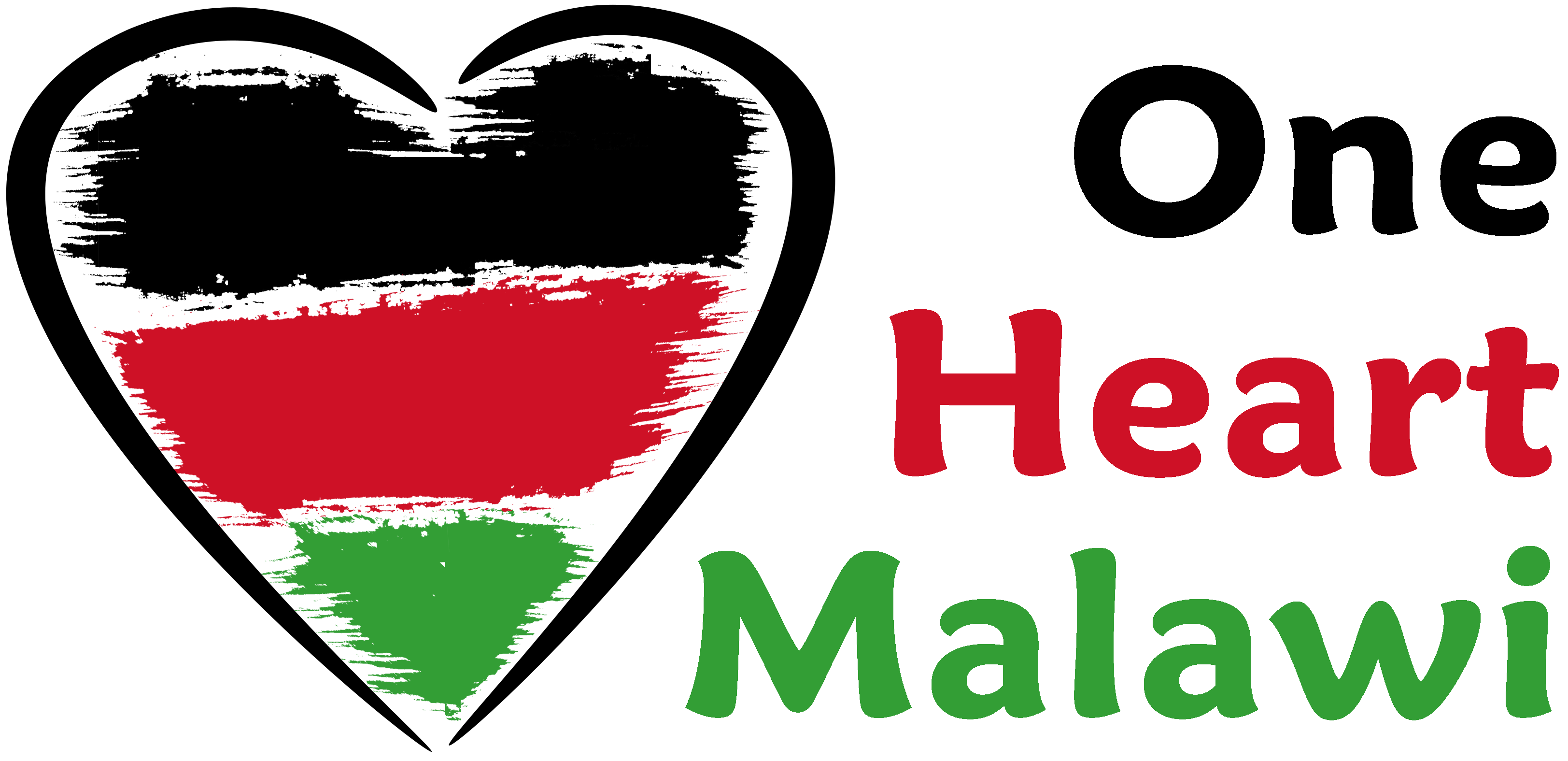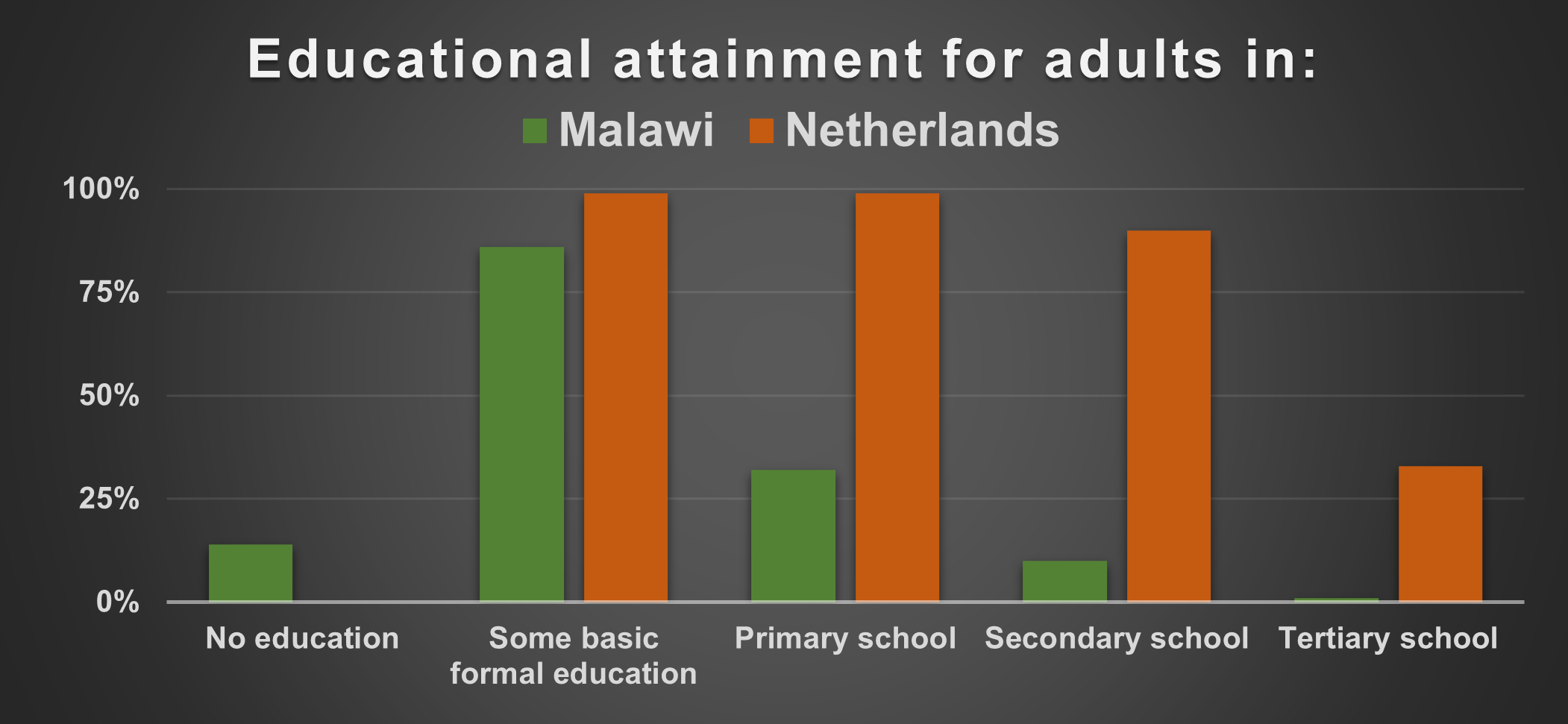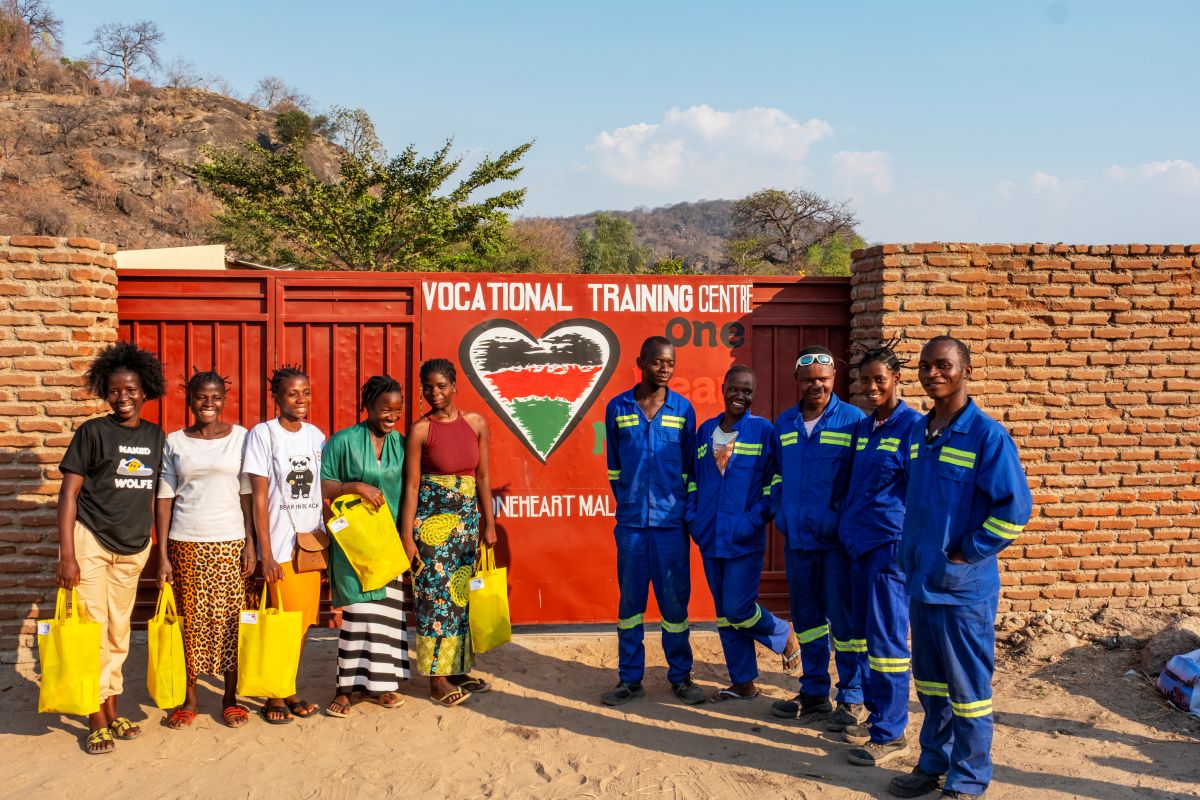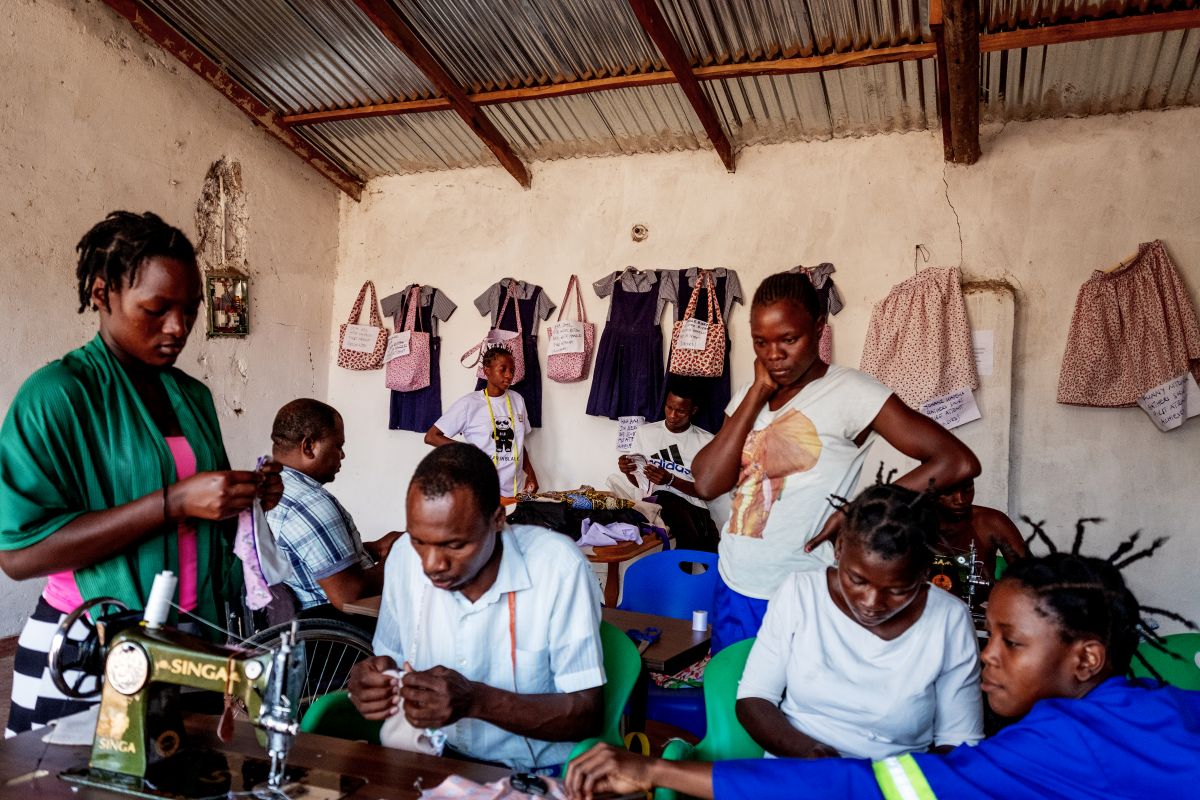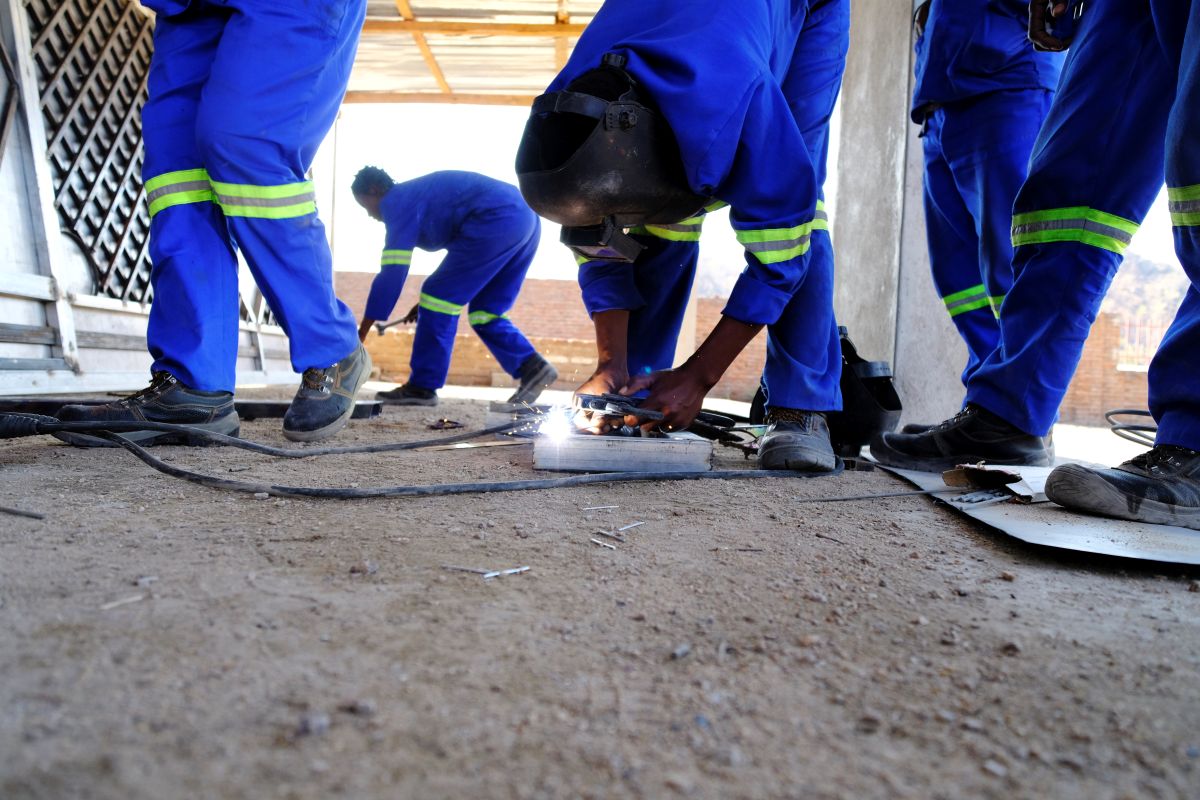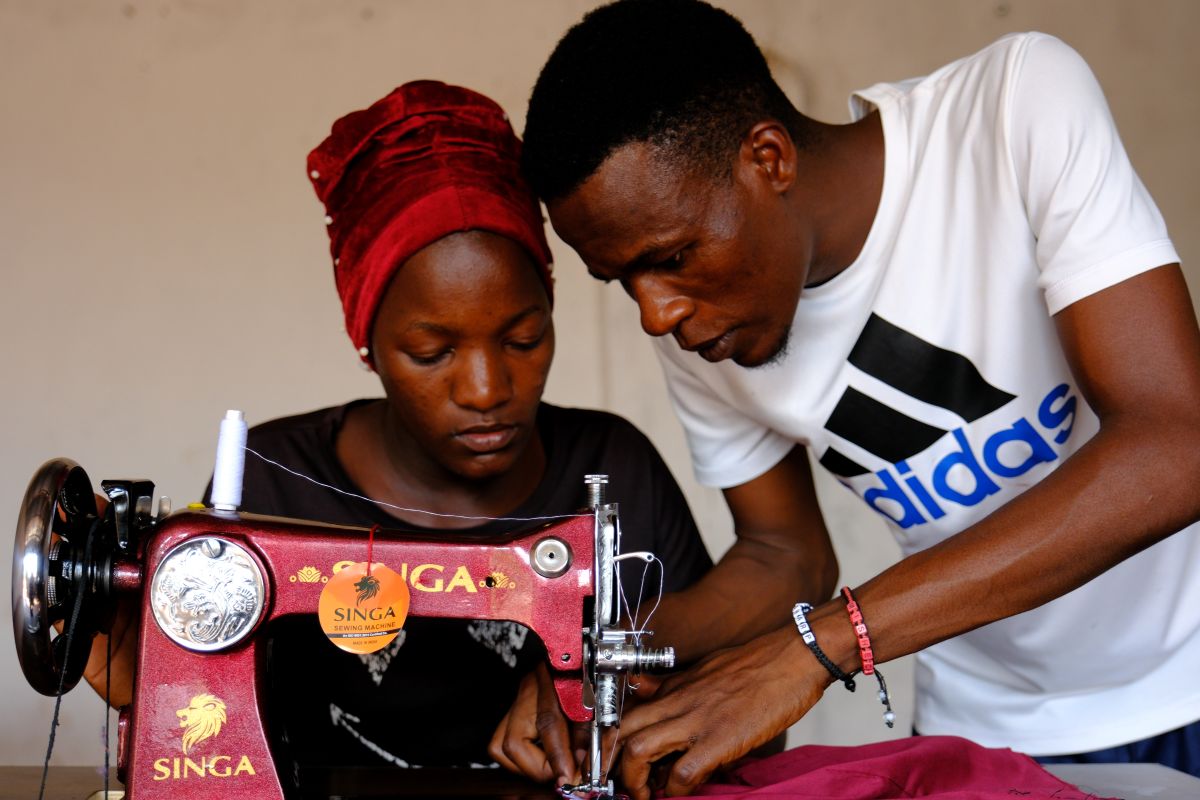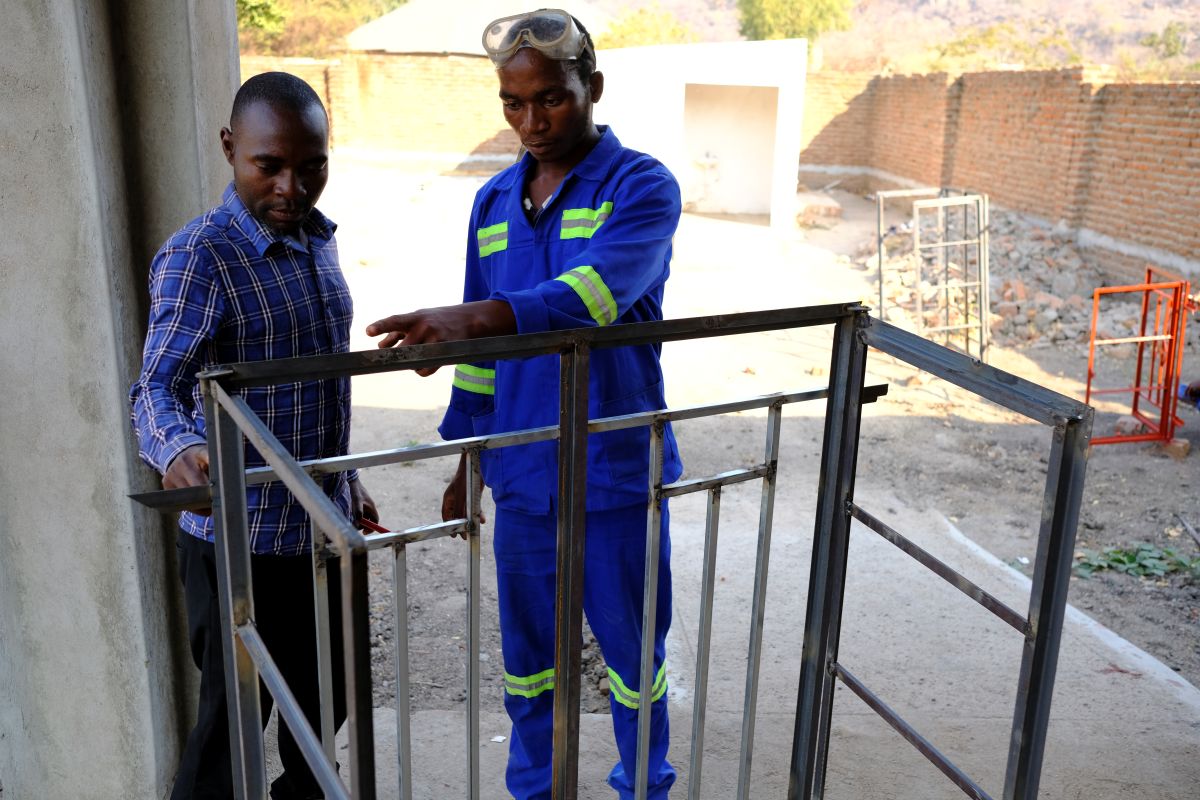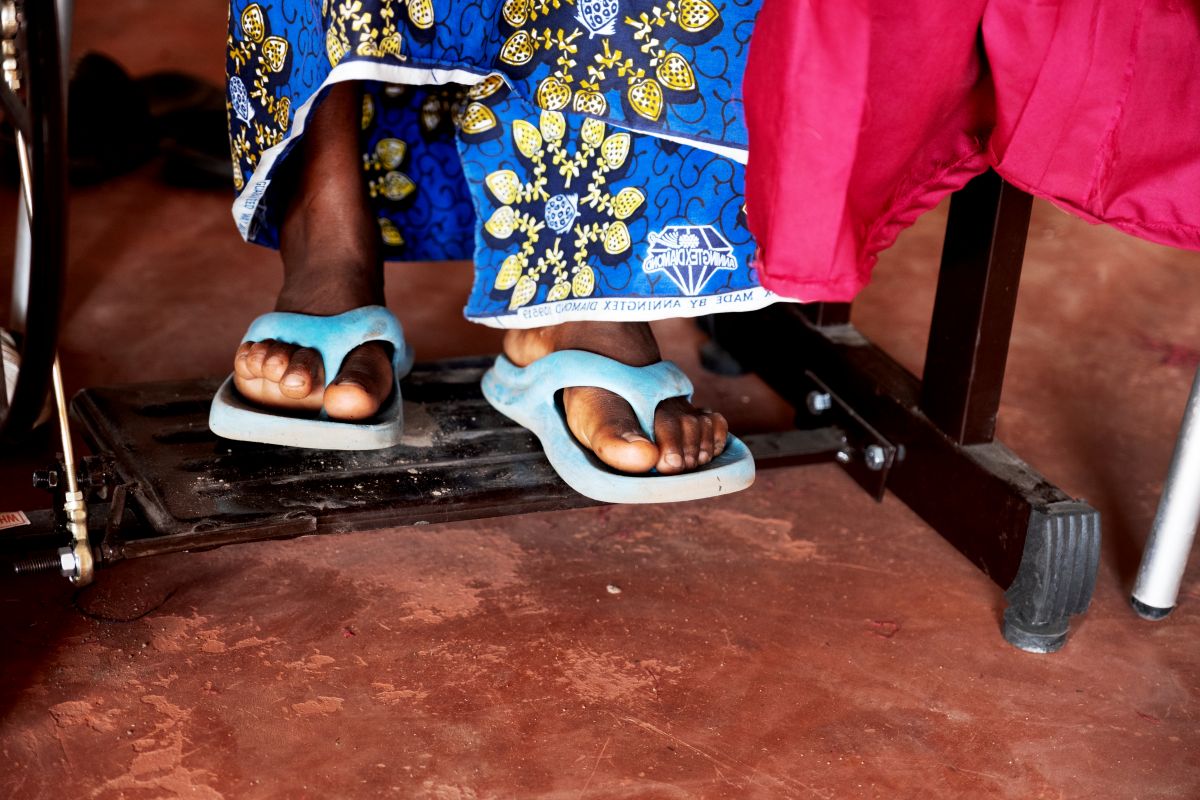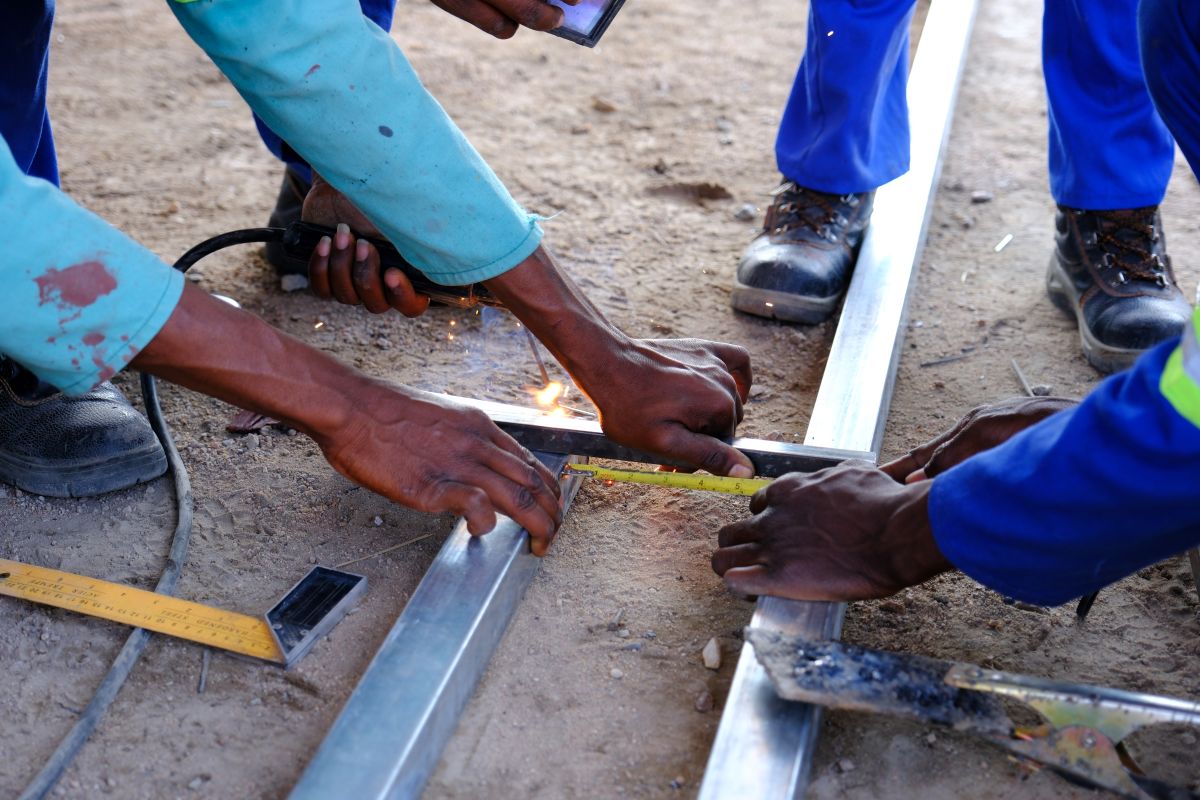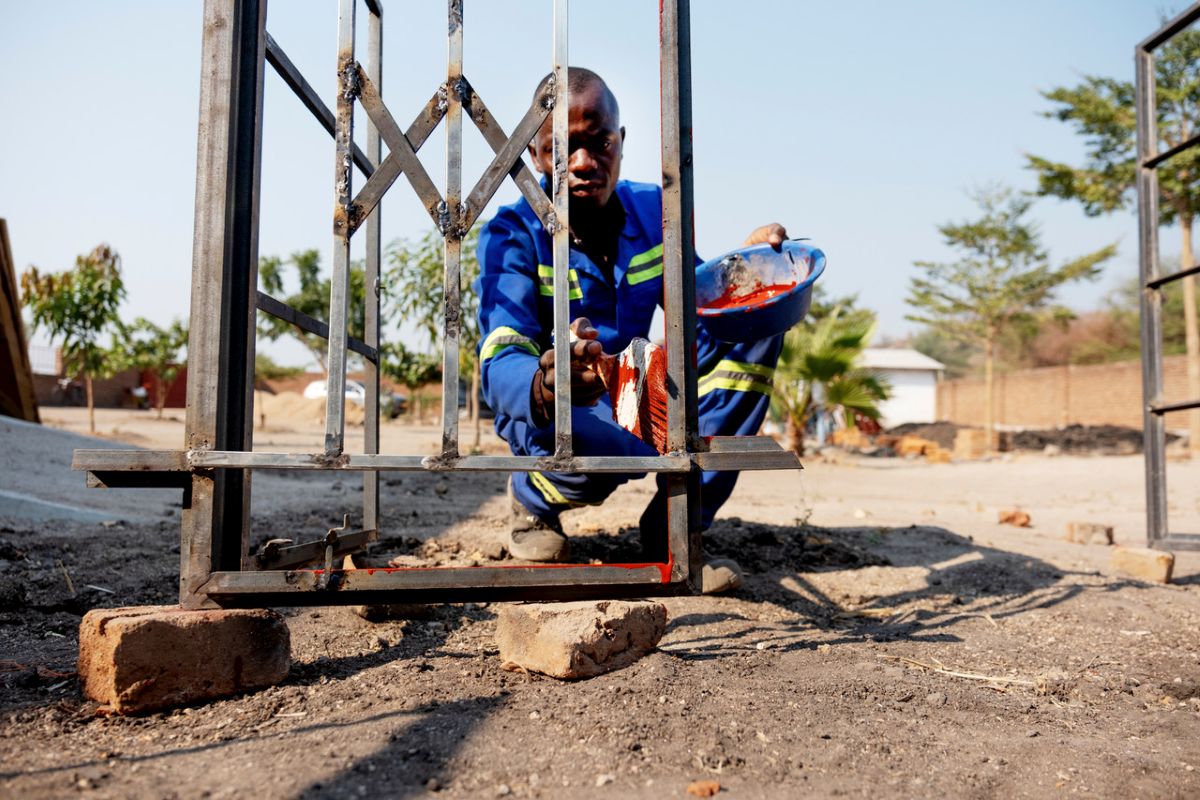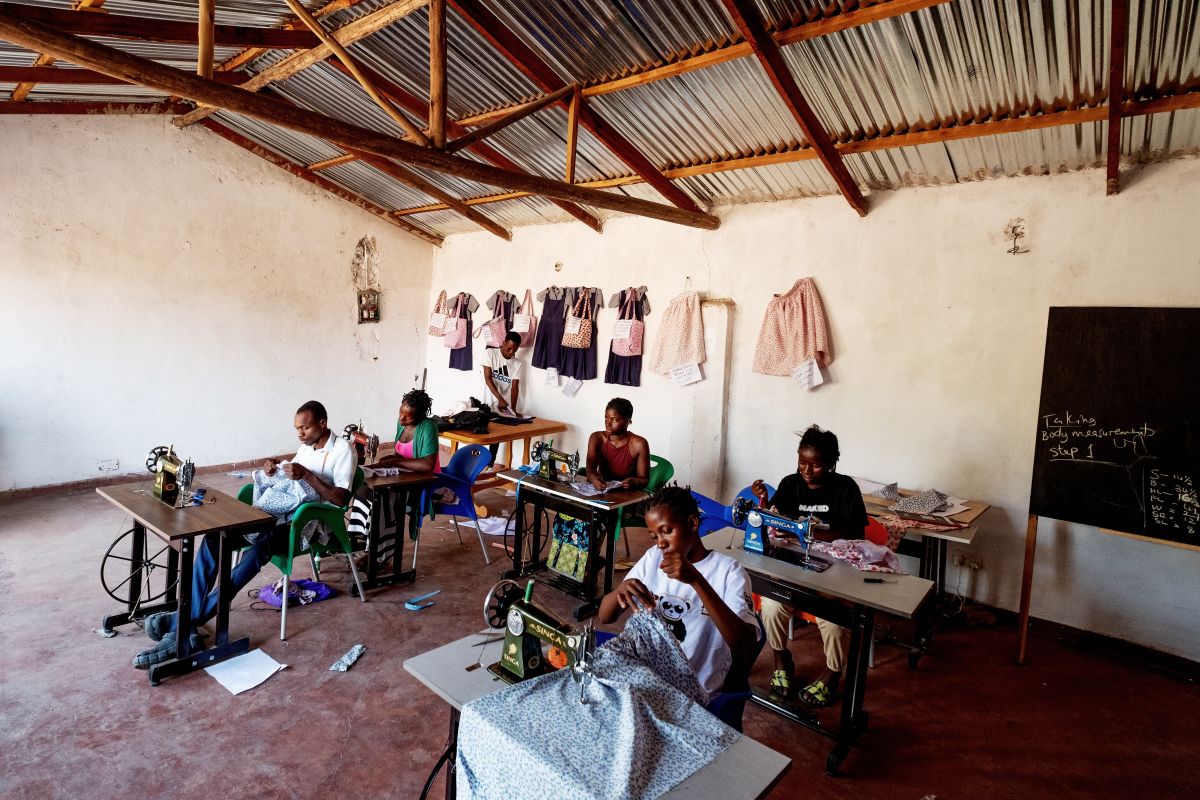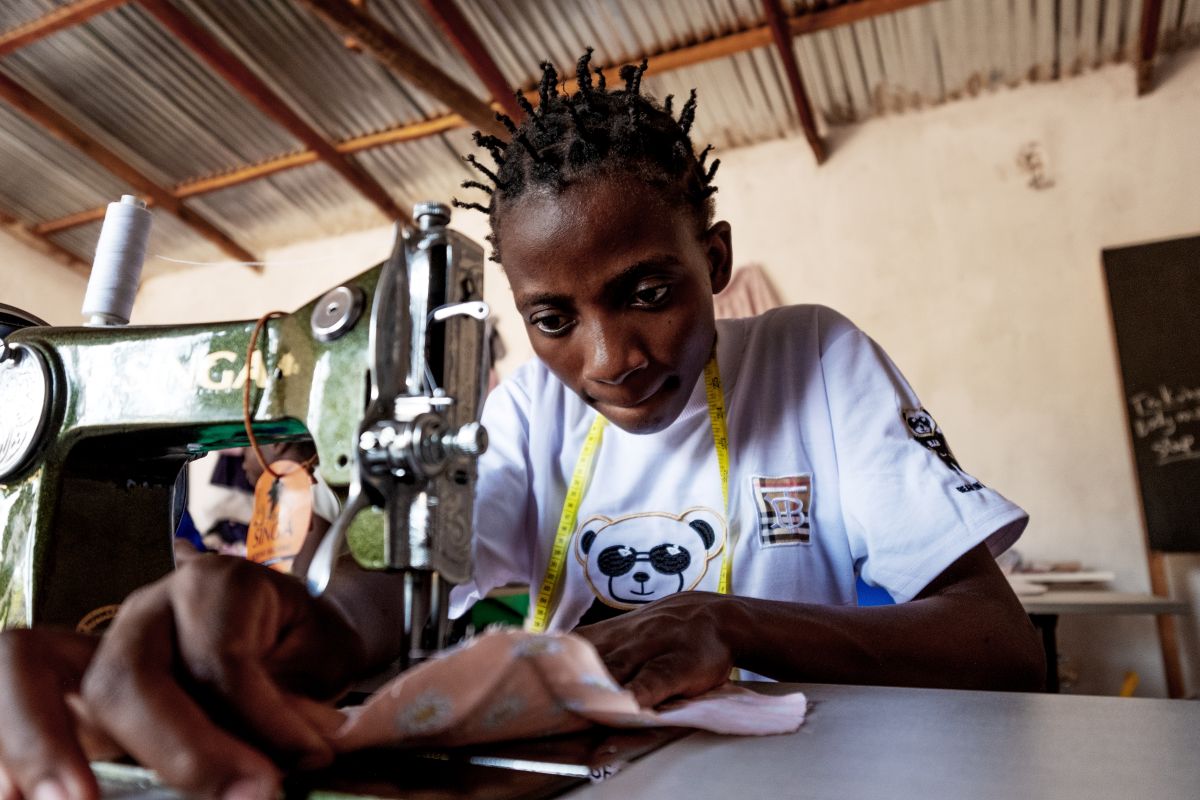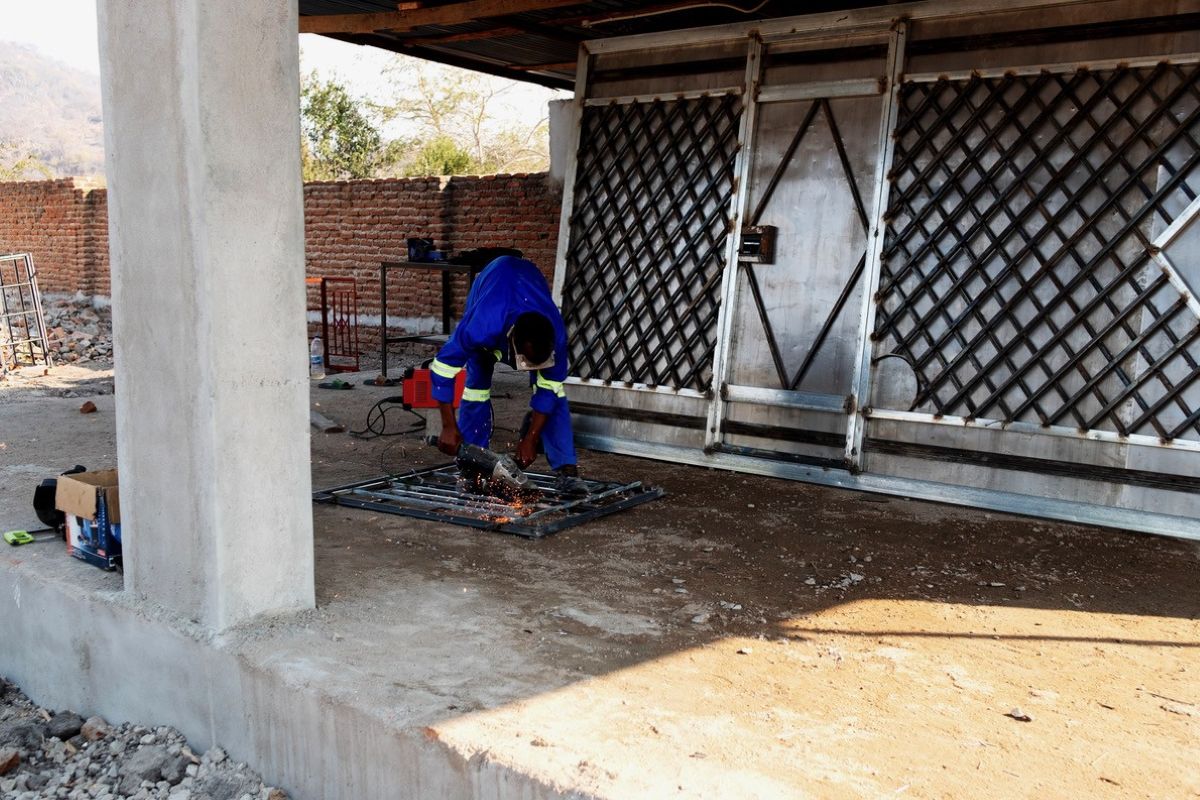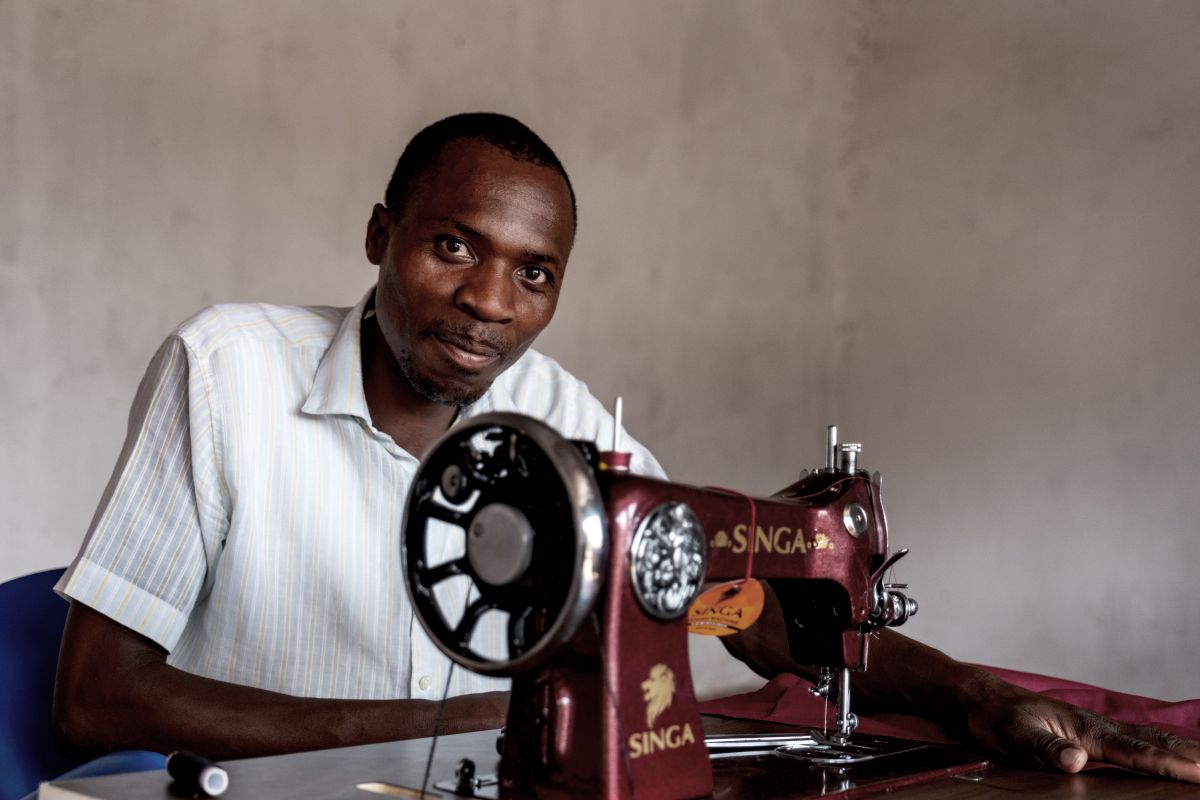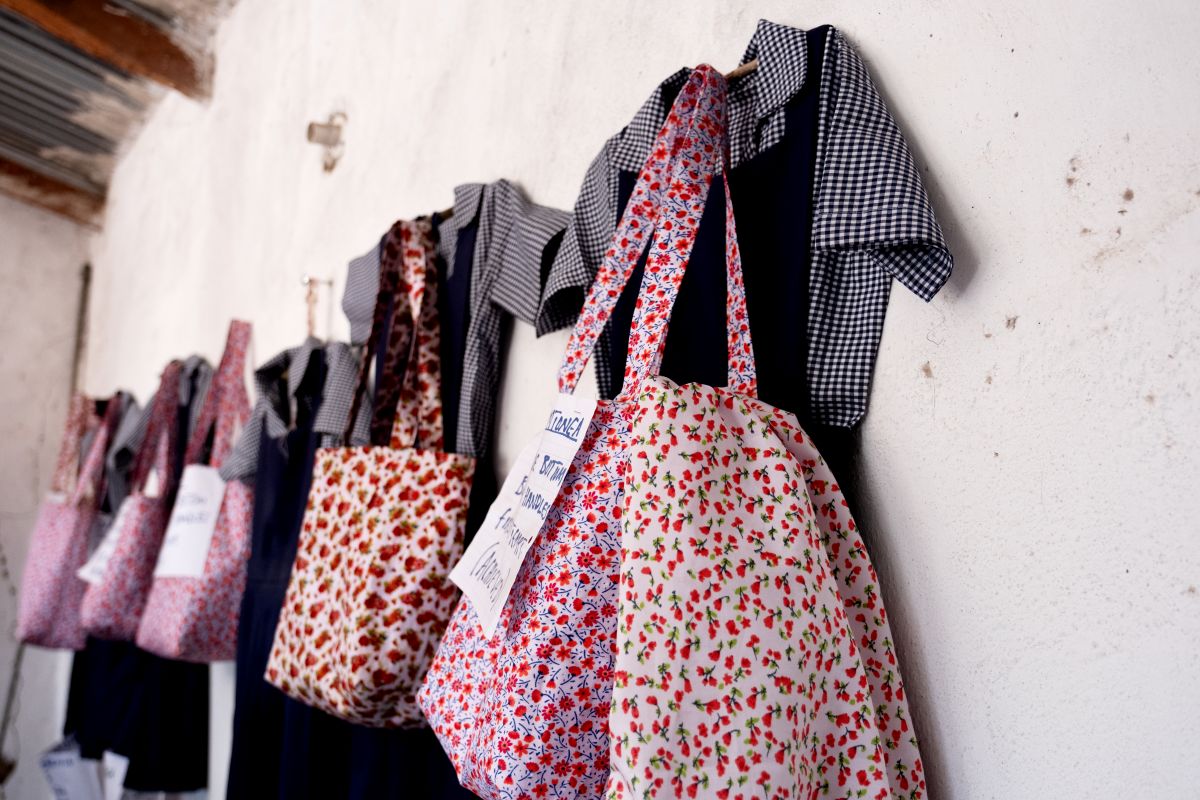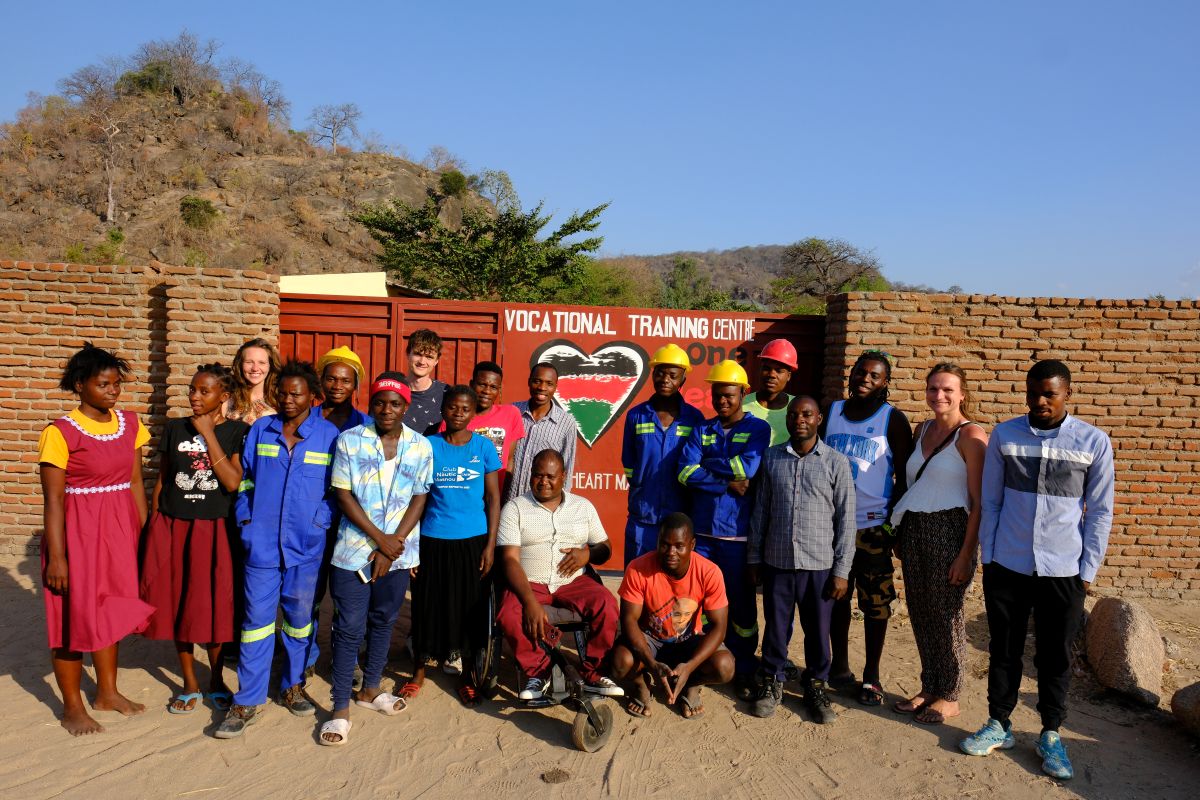Vocational training | Ntchito Zamanja
The first 5 welding and 5 sewing students have graduated from OneHeartMalawi!
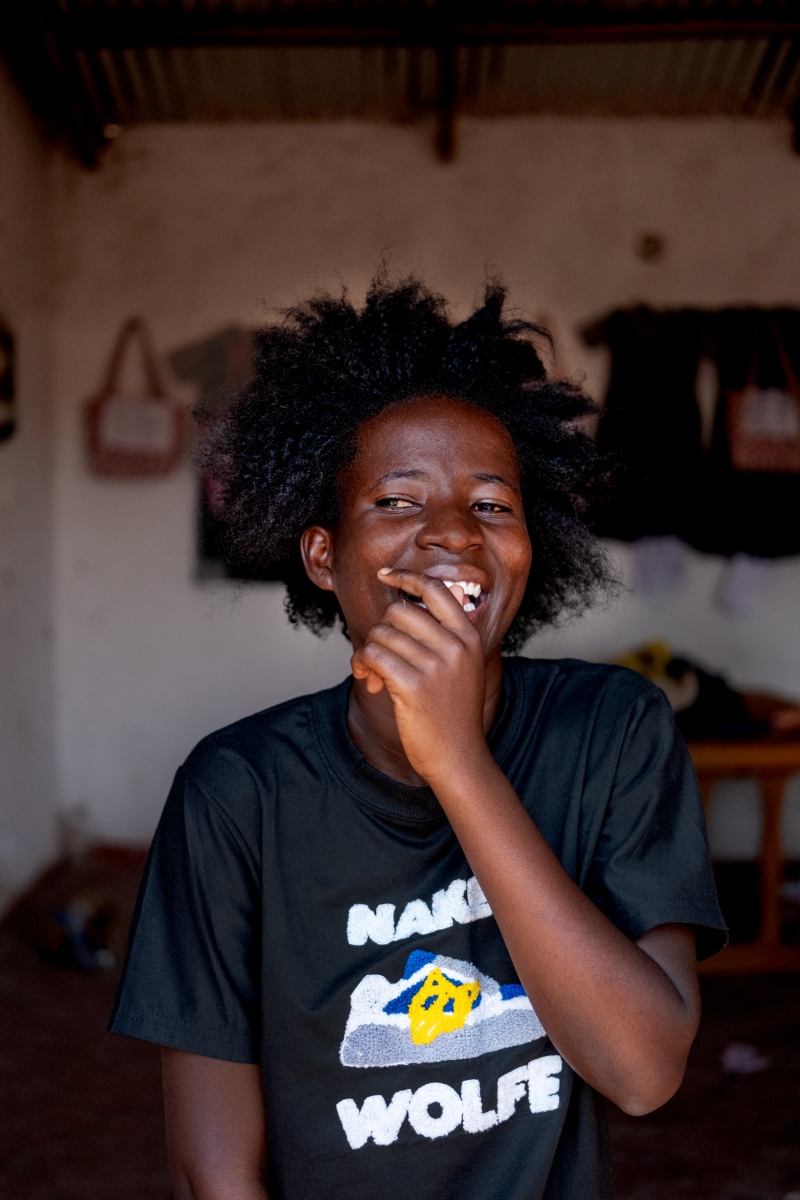
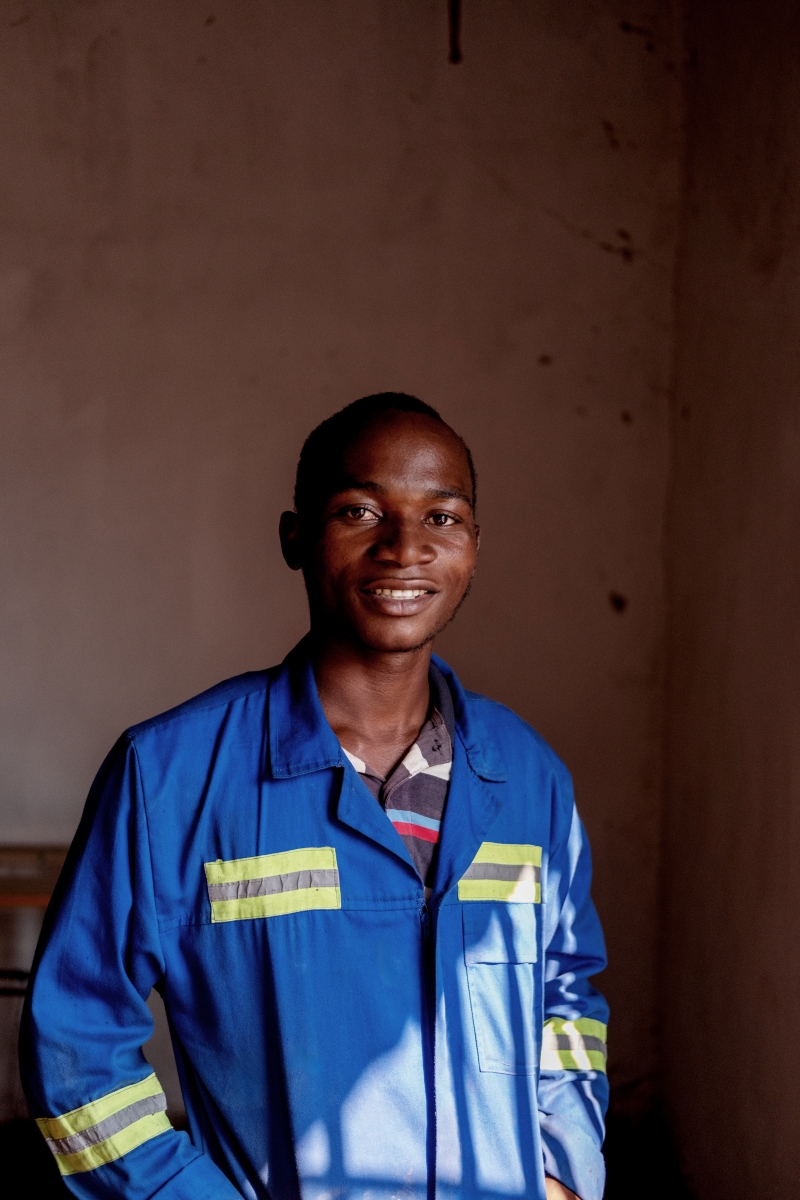
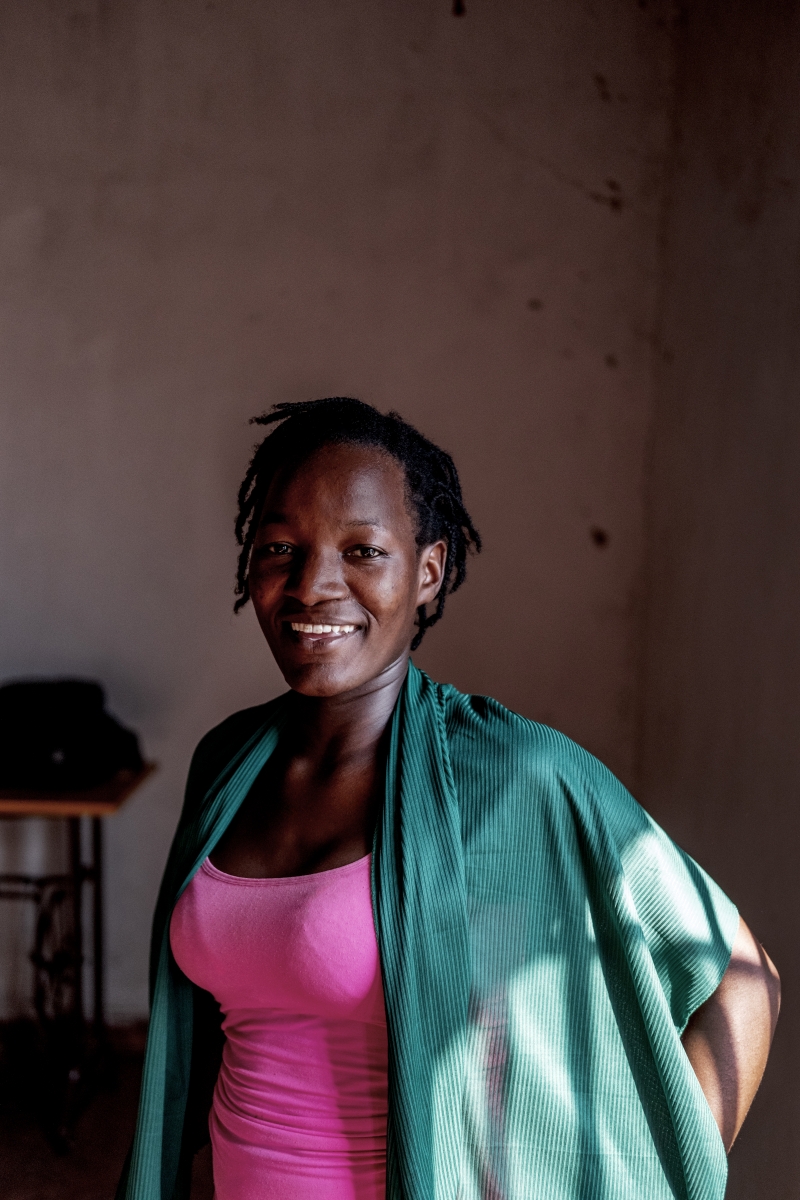
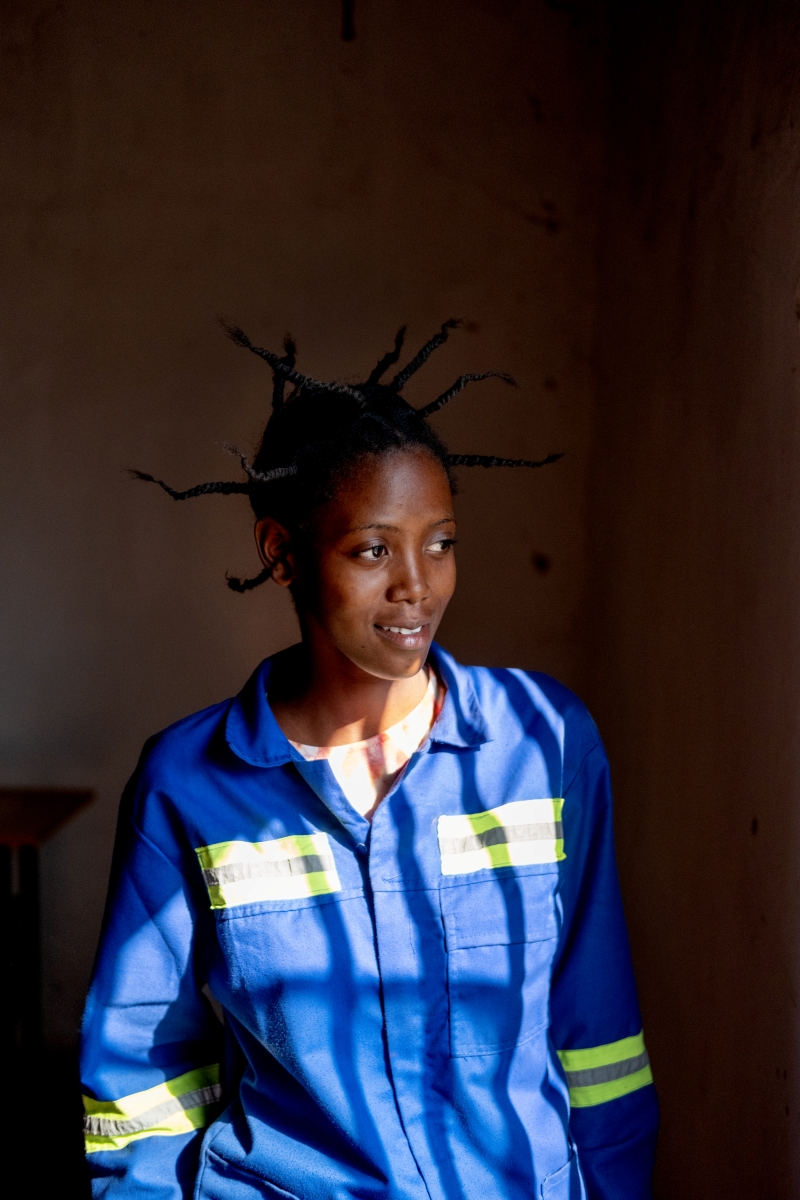
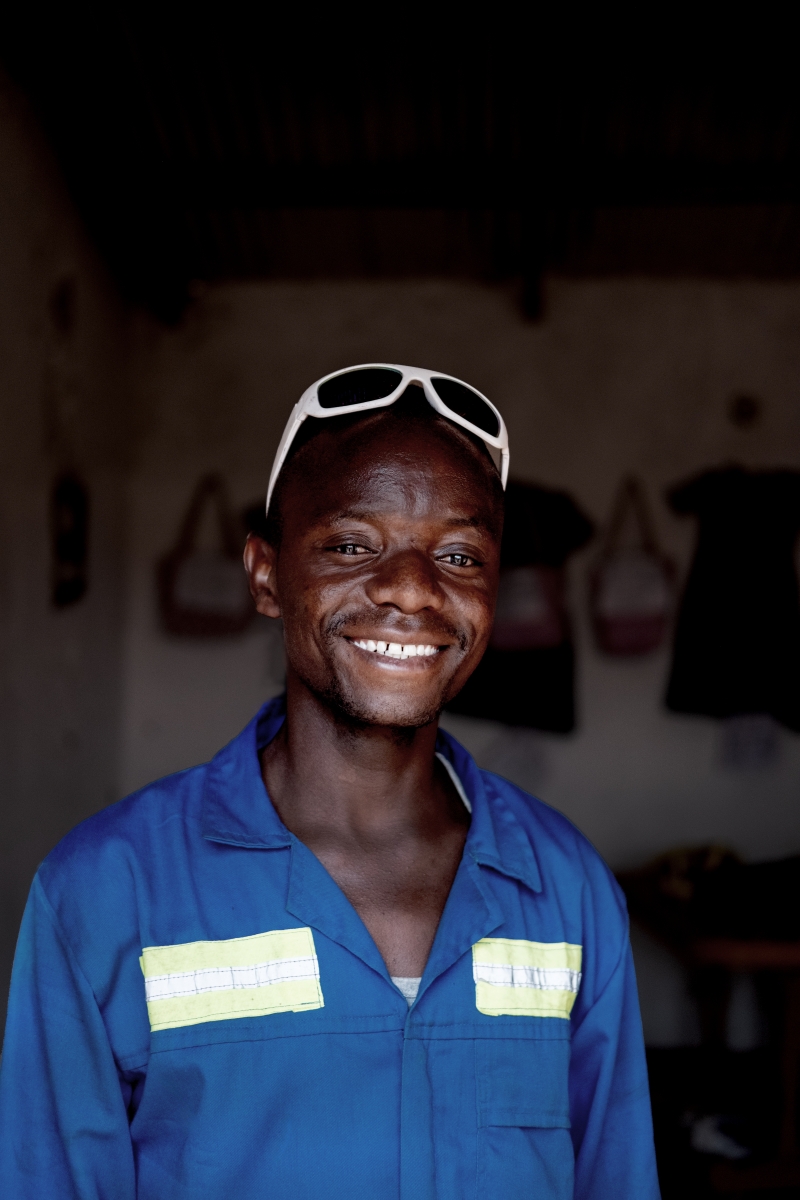
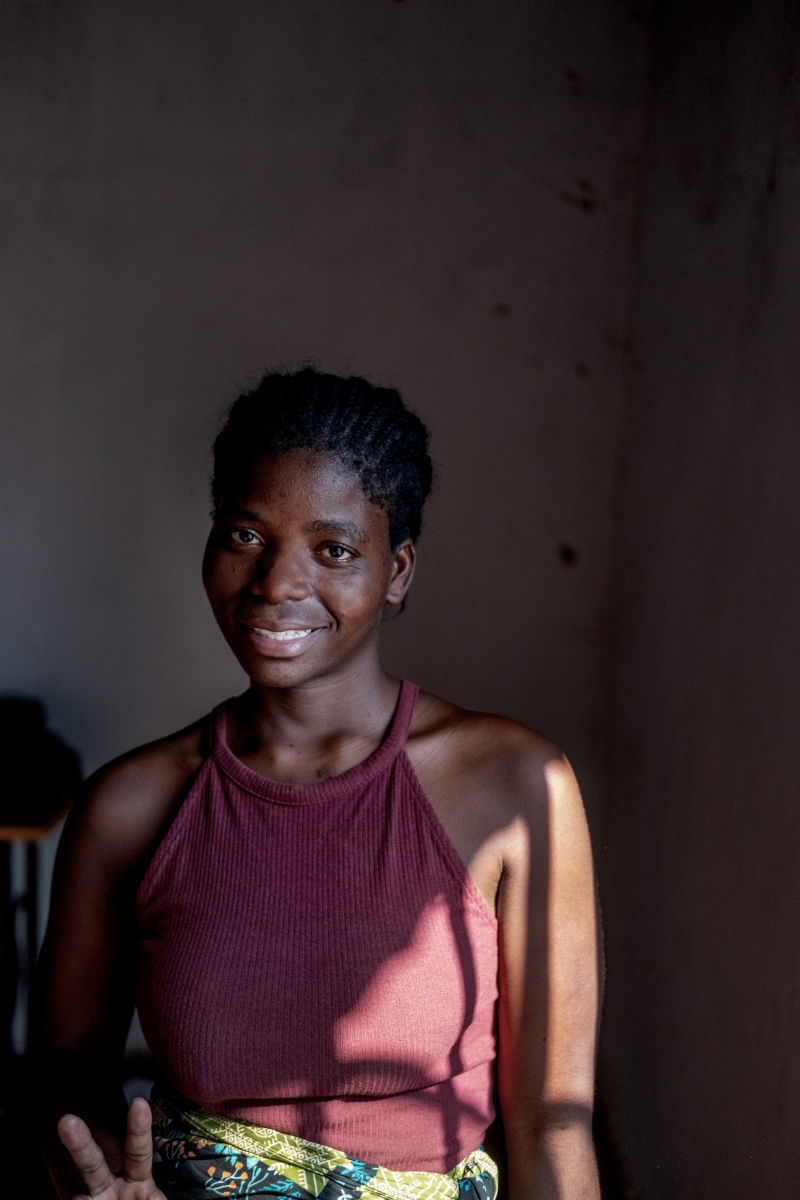
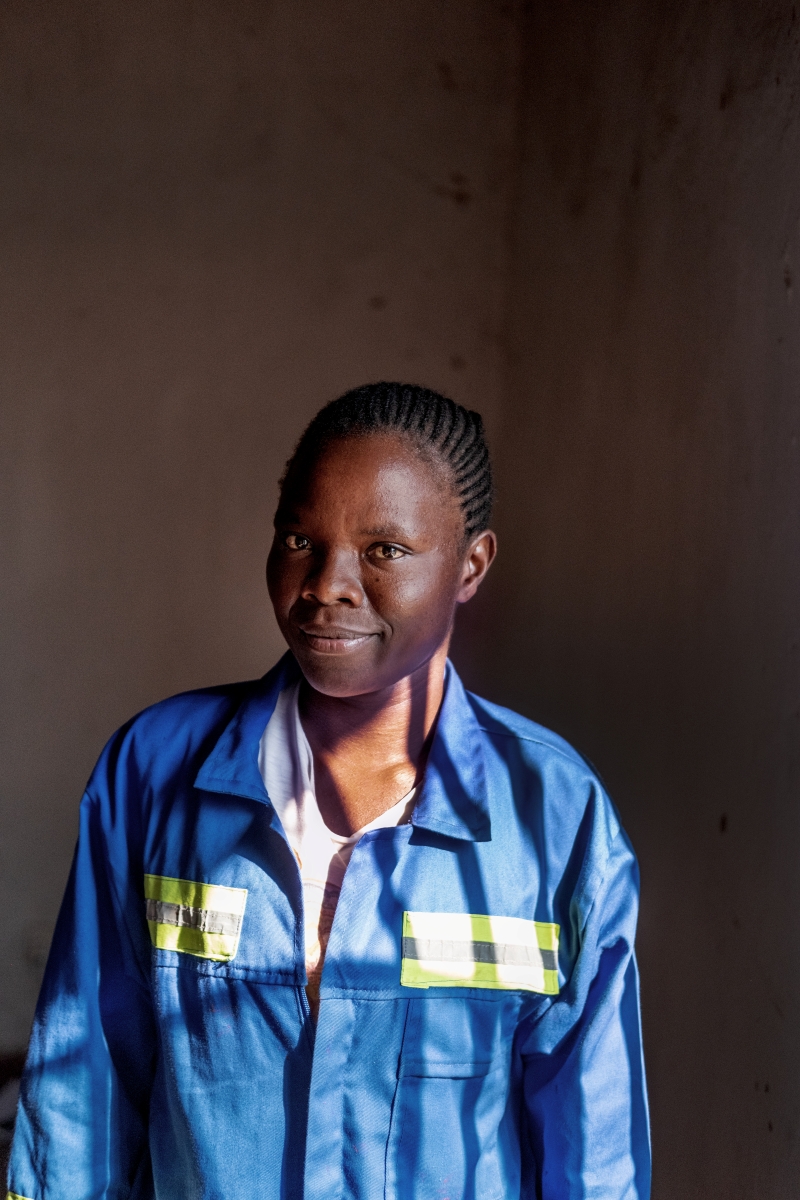
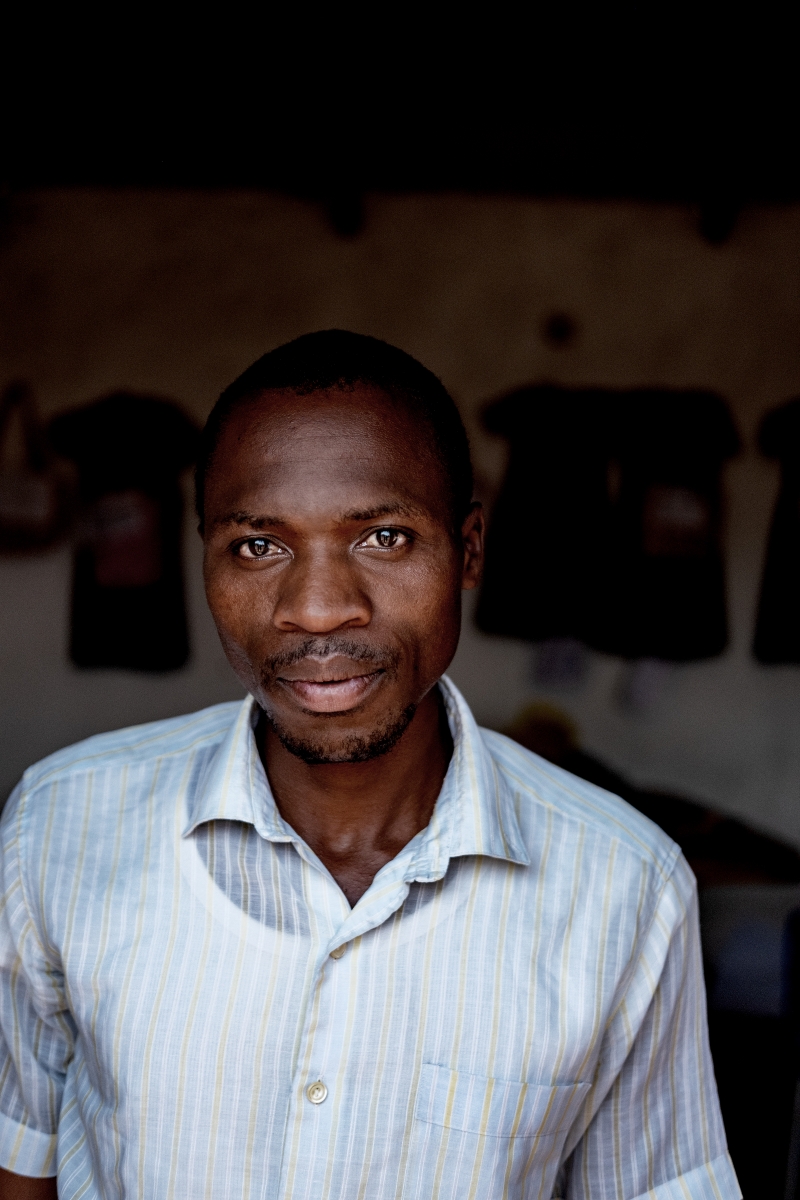
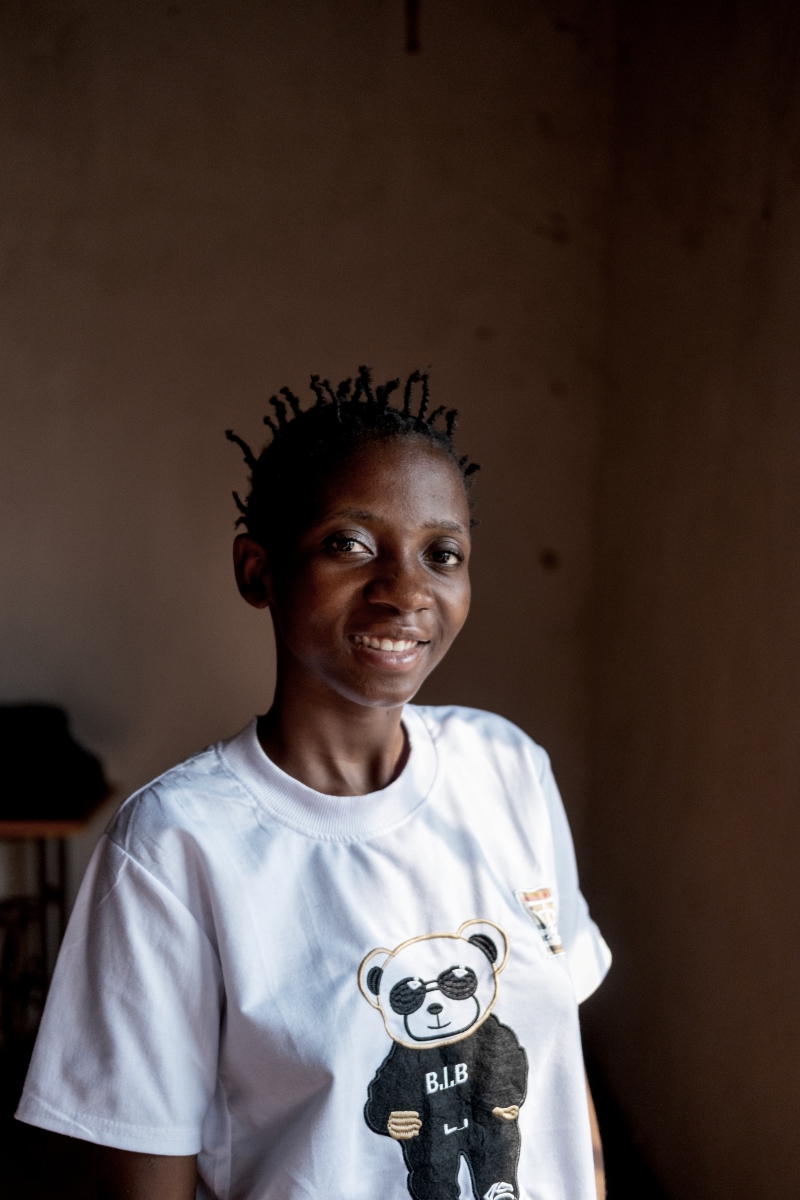
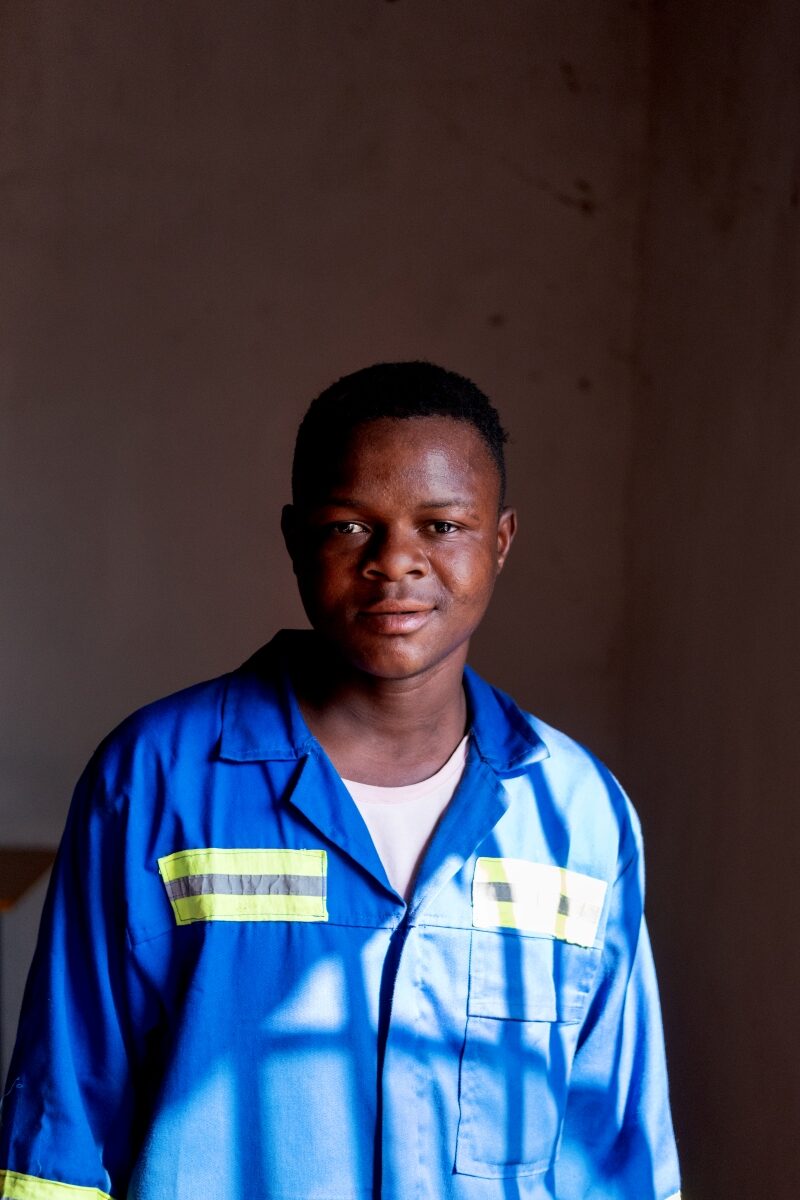
Situation
Lack of opportunities after primary education.
Target group
Young adults from 18 to 29 years.
Approach
Establishing vocational training centre where young adults learn a trade.
Status
Collecting donations to keep the centre running and expand.
Education in Malawi
In Malawi, education is not as self-evident and well organized as in the Netherlands. In principal, everyone can go to primary school because it is free. At the end of primary school the students take an exam. Of all the students that pass this exam, only one third with the highest grades can go to secondary school. This is not for free but affordable for families. For the other two third not selected students the only chance for education is a private school. However, these schools are very expensive in Malawi and only the richest families can afford them. At the end of high school the students take another exam. From this only one tenth of the best students are selected to go to university, in Malawi and sometimes abroad. This is again not free, but often affordable. For the other nine tenth of students, the choice of a private university is very difficult. There are less spots available then there are for the private high schools, and it is even more expensive. In total, only three of every hundred students get the chance to go to the university. There are no official other education levels after high school. This lower chance of education is reflected in the achieved educational level of adults in Malawi, as is visualized in the graph below. Aaron, co-founder of this foundation, was selected to study at the university and could do this in Scotland. Read more about his journey in Our story or continue reading to find out what OneHeartMalawi is doing for the young adults who did not have the opportunity to learn a trade.
At the end of high school, the students are between 17 and 20 years old. Those students that did not get selected do not have any chances or opportunities, and therefore have no future. They lack focus and have nothing to do. These are young adults that are at home with their families and stroll around the villages. Women who do not get the chance to learn a vocation more often become pregnant at a young age or end up in prostitution to earn some income. Aside from the impact this has on these women, this leads to an increase in HIV/AIDS and in the lack of financial means to provide a better future for the newborn children. Young men who do not get the chance to learn a vocation more often end up in the street or get addicted to alcohol and drugs. Unfortunately no job means no income. Social benefits don’t exist in Malawi.
Vocational trainings
To give these young adults a chance, OneHeartMalawi has set up a vocational training centre in Monkey Bay where they can learn a trade such as welding, sewing, cutting hair or making furniture. The setting up of this project consists of 4 phases. We started in January 2021 with phase 1 and have reached the last phase, namely phase 4, in mid-2024. In June 2024 we started offering the welding and sewing training.
Phase 1: Land
Phase 2: Centre
Phase 3: Material
In the third phase, the tools and materials were purchased to be able to give the training. For sewing, this includes sewing machines, fabric, needles, measuring tapes and buttons. For welding, it concerns welding equipment, drills, metal saws and safety glasses.
Phase 4: Trainings
In the fourth phase, where we are now, the training has started. We started this project small, as a pilot, with the focus on two vocations: sewing and welding. The pilot ran from June 2024 to December 2024. We found the most vulnerable students through the chiefs (village heads). After holding interviews, a selection was made and the first welding and sewing students started. OneHeartMalawi has hired two very good, qualified teachers, Biswick Kambambe (sewing teacher) and Enock Pelusi (welding teacher). They also work at the Mangochi Community Technical College, certified by the Malawian TEVETA authority. They come from Mangochi to Monkey Bay three days a week to provide the training on the project land, with the curriculum (which also includes entrepreneurship) that they have from the Mangochi Community Technical College. They do this together with assistant welding teacher Anthony Mwenemulupa and assistant sewing teacher Misheck Lackson from Monkey Bay. The assistant teachers come five days a week and supplement the theory of the certified teachers with practical exercises. The training period lasts 6 months and the lessons are from Monday to Friday from 8:00 to 15:30.
On December 13, 2024, the first 10 students – Hawa, Yohane, Sibongile, Funny, Mwaiwawo, Esau, Frank, Charles, Veronica and Michelle – graduated from the sewing and welding training and received a OneHeartMalawi certificate. It was a day full of joy, pride, love and tears of happiness. Two welding students were employed by a company in January 2025 and three other welding students started an internship with a view to a permanent job. The five sewing students received a loan in the form of a sewing machine from the vocational training center with which they immediately started their own business.
After the successful pilot in 2024, we will continue the welding and sewing training with new, larger training groups. The target group is and remains vulnerable young adults from 18 to 29 years old, without opportunities who are focused and disciplined to take on this path. Through conversations with secondary schools, churches, village heads (chiefs), posters and through local radio we have made an appeal. The application form could be collected from the project land and interviews were performed. As a result, larger groups will be trained from 2025 onwards. Every 6 months, at least 10 students will be trained as welders and at least 10 students will be trained as tailors. Focus on sustainability and independence is our top priority. That is why we are asking for school fees in 2025 that can be paid in monthly installments. For the most vulnerable students who cannot pay the school fees, we have successfully made an appeal in our network for sponsorship, so that these young adults can also participate in the training. In addition, since September 2024, in addition to the training, we have also started the production side of the training. For example, we have a form with information about what we offer and sell, including our contact details. In addition, we have a welding and sewing book with information about OneHeartMalawi with photos of the students during the training and photos of the products that can be made and requested. We leave the form at various schools and organisations and they can browse through the welding and sewing books during our visit, so that they get an idea of what we do and offer. Many requests have already been made from this. In addition to the fact that it ensures that we do not have to purchase materials ourselves and the proceeds can flow back into the project, the students also learn to deal with customers and they get to see the total picture of the profession. For all future buildings on the project land, the chairs, cupboards, door and window frames are made by the students.
The new training groups will also receive a certificate from OneHeartMalawi and in the near future also a certificate from TEVETA. And for these students it does not stop after the training. In the future and with the growth that we are going to experience, we will need more assistant trainers on the project land, so that a number of future students can start working within the vocational training center as trainers. In addition, we have entered into contacts and collaborations with suitable companies where the student can do an internship after completing the training with a view to a permanent job or they can be employed immediately. And finally, there are also possibilities of loans in the form of machines and materials so that they can start their own business immediately, just like in the pilot period. In this way, the project has a great impact and will completely change the lives of vulnerable young adults. They become self-reliant, can provide for their own income and support their families.
The OneHeartMalawi vocational training centre is the only centre in Monkey Bay, Malawi where young adults can learn a trade. Thanks to the support of each individual, the initiatives and the organisations that support us, we can continue with our mission: to train as many young adults as possible for promising professions that will make them self-reliant and able to support themselves and their families.
Do you want to contribute to this project?
We will keep everyone who donated informed about the developments of the project and will prove that the money is being put to good use by posting updates, stories and photos on the website and social media (Facebook, Instagram and LinkedIn) and via our OneHeartMalawi newsletter. The OneHeartMalawi foundation hopes to offer a future to vulnerable young adults in Malawi with this project, but we cannot do this alone. We really hope that you can contribute to making this dream project a reality. You can do this by donating here.
